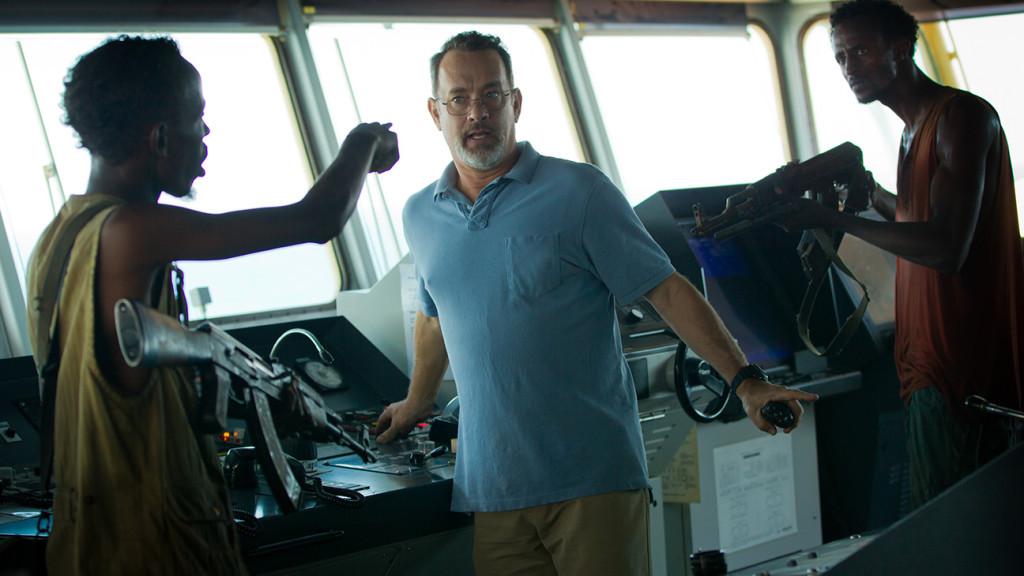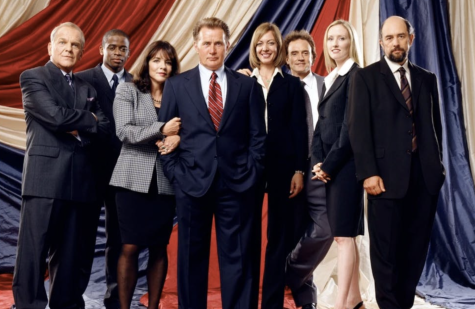Captain Phillips Review
Captain Phillips, released to theaters on October 11, depicts the hijacking of the Maersk Alabama in 2009. It’s a story of four teenage Somali pirates who expertly intercepted the aforementioned 17,000 metric ton cargo ship on its route to Mombasa, Kenya.
Starring Academy award-winning actor Tom Hanks in the title role of Captain Richard Phillips, this movie pulls you through an emotional rollercoaster from start to finish. Using handheld camera shots to see directly in the scenes, much like a documentary would, director Paul Greengrass forces you to understand the perspective of each character and feel empathetic for them, regardless of the crimes they commit.
Captain Phillips begins with Phillips driving to the airport prior to the delivery. He discusses with his wife about how their son needed to work harder in school. He discussed how modern careers needed to be done cheaper and quicker, and how many now fought over the same career positions. He says how one must be strong to survive in the world.
This foreshadows the next scene, which displays a Somali gang collecting tithes from an impoverished fishing community. The community begins to organize another hijacking, as they are unable to provide the money the gang demands. Teenage boys begin fighting over this opportunity to work and feed their families. A direct link is shown between two very different cultures, economic standings and ways of living. Regardless of where these men are raised, the need to provide for their families remains apparent, and work is always in demands. The pirates are not to be considered evil or bad. They’re simply boys desperate to make a living in the most profitable way they know how. You feel passion for the villains, the supposed enemy, generating a connection that would normally not be had.
There is also the consistent internal struggle between Captain Phillips and Abduwali Muse, the head pirate. It builds a colorful conflict that drags the viewer’s emotional connection onto a much deeper level. Muse repeatedly states that he is the Captain of the ship, and consistently struggles for control with a very intelligent Phillips, who uses his understanding of the craft to bend Muse to his will. Muse, who’s is as proud as he is immature, ends up kidnapping Phillips as they escape in a lifeboat, desperate to hold him for ransom as they make a beeline to the Somali coast.
In the lifeboat, tensions rise between the injured and tired pirates, struggling between their own indecision of accepting knowledge from Phillips in contrast to their own pride. Ironically, they’re upset when the Navy approaches them, stating that they’re not being taken seriously, like children. Yet they’re clinging to some false hope, some desperation to win, despite the odds against them at a hundred to one. Hotheaded and immature, the pirates power on forward, unwilling to understand the doom they have brought upon themselves.
Powerful scenes are the glue to this successful film, in a scenario where, as a true story, the ending is already known. The wide panoramic shots between the small orange lifeboat and the US Navy fleet display the power that the small ship commands with their hostage. The mere concept that four teenage boys can demand ransom from a tiny lifeboat shows how delicate the operation of rescue must be operated, building up the viewer’s outlook. The masterfully crafted dialogue keeps the stale lifeboat scenes with plenty of energy, despite a lack of scenery or character change. Suspense is built up with strong contrasting light shots and constant changing of perspective. The final moments display a scene of Phillips’ final struggle, coming to a stunning conclusion that leaves the audience in stunned silence.
Captain Phillips receives five out of five stars, turning the story of four pirates kidnapping the captain of a cargo ship into the life of four desperate teenage boys, immature and hotheaded, making their living in the only way they can. This riveting movie is guaranteed to strike a chord through your emotional heartstrings, simply because true stories of poverty have no winners, only casualties.












